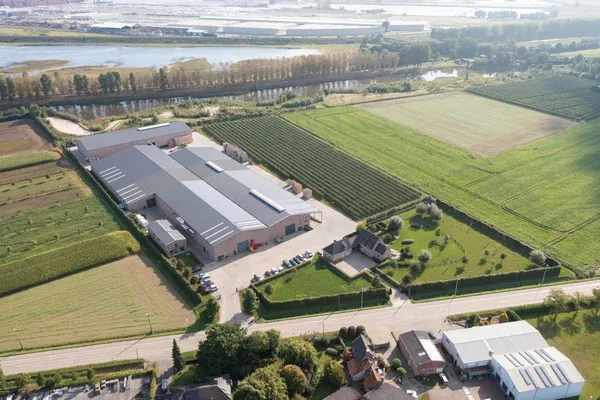"Pears are selling well again after New Year," says Christophe Van Haelst of VHM Fruit Trade. "We never completely stopped, but things always slow down a bit around the holidays. This trend becomes more noticeable each year, but the quieter that period is, the busier January tends to be. Now, everything is moving smoothly again."
The grower and trader from Verrebroek, Flanders, is also pleased with the prices. "Demand is strong, and prices are around 90 cents per kilo in bulk bins. If we can gradually push this up a bit, I'll be satisfied. However, no one should expect a sudden doubling in price—that won't happen, simply because overseas production is doing well. Yields there are strong, and they're also happy with the sizes."

Christophe doubts whether these incoming volumes will pose a threat to Belgian Conference pears. "There's no need to worry about that. The good news is that we have slightly less stock than last year, and we need it. We all remember how things turned out then, so people seem to have learned not to hold onto everything until the end of the year. Of course, everyone wants the best price, but we have to recognize that the current profit margins are solid. With overseas volumes coming in, prices won't suddenly rise to €1.50 per kilo in bulk bins. Supermarkets are also preparing for the upcoming supply, with agreements being made and everything planned out quite well."
Better one bird in the hand than ten in the air
Moreover, he warns that holding onto pears for too long can create a distorted market. "We harvested about 3% less than last year, so we can call this a full production year. As a result, we're not concerned about the pears in storage. The samples we take show similar quality to previous years, but we do see some growers with only half their usual yield. These orchards often have more quality issues, as smaller harvests are generally less suitable for long-term storage."
 © Van Haelst Fruit
© Van Haelst Fruit
"Ultimately, this could lead to an unbalanced market with significant differences in quality. That's why January, February, and March will be crucial for selling everything before storage issues arise. It's better to sell a stock of pears with no quality problems at 90 cents than to wait for prices above €1 and face excessive waste. In the end, that earns you less. Better one bird in the hand than ten in the air. Right now, everyone is sorting their stock carefully, and I hope they continue to do so wisely."
Deliscala
Meanwhile, VHM Fruit Trade is preparing for Fruit Logistica, where their Deliscala brand—focused on exports to distant markets—will be in the spotlight. "This is a test year for us. The first pears have arrived in China, and the feedback has been overwhelmingly positive. We aim to serve only the top segment with this brand, setting ourselves apart in terms of quality."

"Many of our customers will be at the fair in Berlin, and we've already heard they are interested in expanding further next season. I believe investing in this is a smart move. In recent years, European production has been lower, but there will come a time when supply is high again. When that happens, we will need the Asian markets to absorb the extra volume. Of course, we want to maintain our focus on the premium segment, but in years of high production, the overall quality is often better too. That means more high-quality fruit available for export, and we see a lot of opportunities in these markets."
So VHM Fruit Trade will also be present at the upcoming Fruit Logistica: Hall 27, Stand A-40.
For more information:
Christophe Van Haelst
Van Haelst Fruit / VHM Fruit Trade
Kieldrechtsebaan 85
BE-9130 Verrebroek, Belgium
Tel: +32 (0)3 336 16 47
info@vanhaelstfruit.be
www.vanhaelstfruit.be
